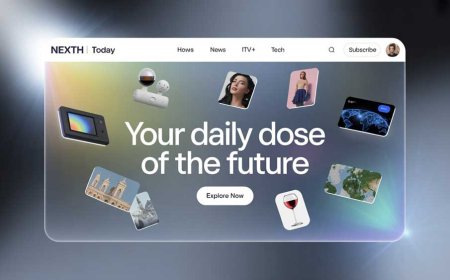Is Facebook a Sharist Platform? Rethinking Sharing in the Age of Surveillance Capitalism
This article explores whether Facebook truly embodies Sharism or if it operates under the paradigm of Surveillance Capitalism. It critically examines data monetization, algorithm control, and the gap between digital sharing and value extraction, calling for a rethink of digital collaboration in today’s hyperconnected world. Analyze Facebook’s role in digital sharing through the lens of Sharism versus Surveillance Capitalism. Discover how data exploitation challenges open collaboration and why transparency and equitable value distribution are vital for a fair digital future.

The evolution of Facebook—and many other digital platforms—cannot be fully understood without examining the rise of Surveillance Capitalism, a concept coined by Shoshana Zuboff to describe a new economic model based on the systematic extraction of behavioral data.
In Surveillance Capitalism:
- Users are not customers—they are raw materials. Personal data is harvested, analyzed, and transformed into "predictive products" sold to advertisers and third parties.
- Algorithms become tools of behavioral control. Every action online is tracked and shaped to maximize engagement, often at the cost of knowledge quality and user well-being.
- Collectively generated value is privatized. Relationships, content, interactions, and even emotions are turned into proprietary assets for the platform’s profit.
This model stands in direct opposition to the principles of Sharism, which promotes transparency, equitable value sharing, and conscious participation. While Sharism envisions a society where data is a common good and technology empowers communities, Surveillance Capitalism transforms sharing into commercial surveillance.
So, providing tools for sharing is not enough. We must ask deeper questions: What are the platform’s goals? Who controls the algorithms? Where does the user-generated value go? Who owns the data?
Sharism presents itself as a systemic alternative to this trend, calling for a radical redefinition of the relationship between technology, data, and society.
Understanding Sharism
Sharism is a cultural and economic philosophy that promotes open access, peer-to-peer collaboration, and collective value creation. It emphasizes:
- Knowledge sharing over hoarding
- Open innovation over closed systems
- Collective benefit over centralized control
Sharism challenges proprietary models by encouraging distributed power, mutual learning, and shared growth—particularly in areas like technology, education, art, and governance.
Facebook: Sharing or Extracting?
At first glance, Facebook seems to align with the spirit of Sharism. Users share their lives, ideas, and content with friends and communities across the world. Information circulates rapidly, and grassroots movements thrive on the platform’s viral mechanics.
However, beneath this surface lies a very different economic engine: surveillance capitalism.
- Facebook monetizes user data—not to promote collective empowerment, but to optimize advertising.
- The platform’s algorithms prioritize engagement and monetization, not shared knowledge or truth.
- Content is governed by opaque moderation policies, and user contributions feed a system where value flows to the platform, not the people who create it.
In this model, sharing is not an end in itself but a means of extraction.
Sharism vs. Facebook’s Model

Despite its branding, Facebook operates within a model fundamentally at odds with the principles of Sharism.
Could Facebook Become a Sharist Platform?
While Facebook as it exists today is not a Sharist platform, some steps could bring it closer to that ideal:
- Data Portability and Ownership: Giving users ownership and control of their data.
- Open Source Algorithms: Letting the community audit and contribute to recommendation systems.
- Revenue Sharing Models: Compensating users for the content and engagement they generate.
- Decentralized Governance: Allowing users to have a real say in how the platform is run.
These would require a radical departure from the current business model—but they are not impossible.
Facebook may appear Sharist at first glance, but its underlying logic contradicts the very foundation of true Sharism. Rather than empowering users through mutual benefit, it turns their contributions into private capital. If we want a digital ecosystem built on the values of collaboration, transparency, and shared prosperity, new models—or major reforms—are needed.
Sharism remains a vision, not yet fully realized in today’s mainstream social platforms. Whether Facebook can evolve toward that vision is a question not just of technology—but of values and will.
Beyond Sharing: The Essential Questions
Providing tools for sharing is not enough. Behind every digital action lie deeper dynamics that demand critical reflection. We must ask fundamental questions:
- Who controls the algorithms? Are they transparent, or are they manipulating our choices to maximize screen time?
- Who owns the value we generate? Our content, relationships, and interactions—who truly benefits?
- Where do our data go? Are they protected? Are they used for the public good or monetized by a few?
Sharism offers a concrete and necessary alternative to the dominant model. It envisions a world where technology serves people, not the other way around. It calls for a redefinition of the relationship between technology, data, and society, grounded in transparency, equity, and active participation.
It’s time to reclaim the digital realm as a common good.
More informazion about Sharism https://sharism.wiki - https://sharism.xyz
What's Your Reaction?



































